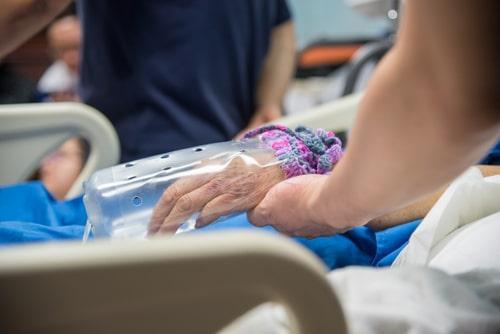312-535-4625
60 W. Randolph Street, Suite 300, Chicago, IL 60601
5 Convenient Locations - Available 24/7 - We can travel to you
When is Physical Restraint of a Nursing Home Resident Appropriate?
 The majority of people living in a nursing home must stay there because they have mental and/or physical ailments that make it impossible for them to live alone. Dementia, Alzheimer’s disease, and other illnesses that affect cognition are especially common in nursing home resident. These illnesses can sometimes cause a nursing home patient to become extremely confused or hostile.
The majority of people living in a nursing home must stay there because they have mental and/or physical ailments that make it impossible for them to live alone. Dementia, Alzheimer’s disease, and other illnesses that affect cognition are especially common in nursing home resident. These illnesses can sometimes cause a nursing home patient to become extremely confused or hostile.
In some cases, a resident may believe that nursing home staff or other residents are trying to hurt them so they act out aggressively. In order to keep residents from harming themselves, other residents, or nursing home staff, physical restraints are sometimes used. However, excessively using physical restraints to confine a nursing home resident can constitute nursing home abuse.
Common Types of Physical Restraints
Restraints are anything that restricts the movement of a nursing home resident. Examples of physical restraints include:
- Bed Rails
- Soft ties
- Hand mitts
- Wheelchair bars and breaks
- Belts
- Vests
- Specialized chairs
- Lap trays
- Lap cushions
When used correctly and sparingly, physical restraints can help keep a resident safe. Unfortunately, some nursing homes restrain residents in a way that causes more harm than good. Excessive use of physical restraints can cause bed sores, bruises, decreased muscle strength, increased agitation, and other serious problems.
The Illinois Nursing Home Care Act Identifies Appropriate Use of Restraints
In order to better protect the rights of individuals living in a nursing home, Illinois adopted the Nursing Home Care Act. According to the Act, restraints may only be used when:
- The resident’s guardian has given informed consent to use restraints
- Restraints are used only for brief periods of time to maintain the resident’s “highest practicable physical, mental or psychosocial well-being”
- Nursing home staff have consulted with health professionals, and less restrictive safety measures have not been successful
Nursing home staff may not, under any circumstances, use physical restraints for their own convenience. A resident’s movements should only be restricted if doing so is necessary for their own and others’ safety. Chemical restraints such as sedatives must also be used sparingly and never for the convenience of staff.
Contact a Chicago Nursing Home Abuse Lawyer
If your loved one has been inappropriately restrained while staying in a nursing home, he or she may have been the victim of abuse. Contact an experienced DuPage County nursing home abuse injury attorney to explore your legal options. Call the compassionate and highly skilled legal professionals at Schwartz Injury Law at 312-535-4625. Schedule your free, no-obligation initial consultation today.
Sources:
https://www.ncbi.nlm.nih.gov/pmc/articles/PMC2564468/
http://www.ilga.gov/legislation/ilcs/ilcs5.asp?ActID=1225




